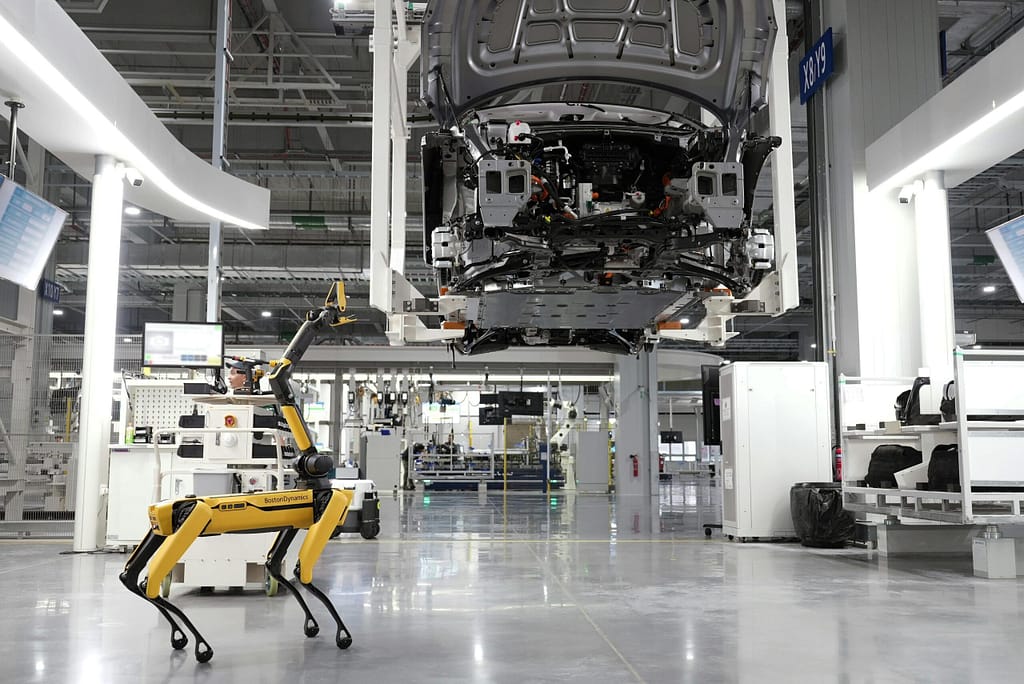Introduction
Artificial Intelligence (AI) is rapidly transforming every aspect of our lives. From smart assistants to self-driving cars, AI is reshaping industries and revolutionizing everyday experiences. In the next five years, we can expect AI to become even more integrated into daily life, offering enhanced convenience, efficiency, and personalization. This article, brought to you by iWise, explores the future of AI, highlighting key trends, innovations, and real-world applications that will define the next half-decade.
From Manual to Automated: How Businesses Can Leverage AI for Growth
AI is revolutionizing the way businesses operate, shifting from traditional manual processes to automated, AI-driven solutions. Companies leveraging AI effectively are seeing increased efficiency, cost reductions, and improved customer satisfaction. The adoption of AI-powered workflow automation, predictive analytics, and intelligent decision-making is driving unprecedented business growth.
Businesses can benefit from AI-enhanced automation in multiple ways. AI-powered chatbots streamline customer support, reducing wait times and improving satisfaction. Machine learning algorithms analyze vast amounts of data to predict market trends, optimize supply chains, and personalize marketing strategies. AI-driven automation also enhances cybersecurity, identifying threats in real time and preventing potential breaches before they occur.
The financial sector, for example, uses AI-powered fraud detection and automated risk assessments to minimize losses and improve transaction security. In e-commerce, AI-driven recommendation engines help businesses deliver personalized shopping experiences, increasing customer retention and sales. Manufacturing industries rely on AI for predictive maintenance, reducing downtime and operational costs.
As businesses transition from manual processes to AI-driven automation, they must focus on training employees, integrating AI with existing workflows, and ensuring ethical AI implementation. Companies that embrace AI will remain competitive, adaptive, and innovative, leading their industries into the future.
How AI is Revolutionizing the Finance Industry: From Trading to Risk Management
AI is reshaping the finance industry by improving efficiency, reducing risks, and optimizing decision-making. Financial institutions are increasingly integrating AI-driven solutions for trading strategies, fraud detection, and risk management, providing businesses and consumers with smarter, safer financial services.
AI in Trading and Investment
AI-powered trading platforms leverage machine learning algorithms and predictive analytics to analyze vast amounts of market data in real time. These AI-driven trading systems identify patterns, execute trades at optimal times, and adjust strategies dynamically based on market trends. High-frequency trading (HFT) powered by AI has significantly increased efficiency in stock markets, enabling institutions to process complex financial data at unparalleled speeds.
AI in Risk Management and Fraud Detection
AI is playing a critical role in risk management by predicting potential market fluctuations and assessing investment risks more accurately. Financial institutions use AI-driven models to analyze historical data, economic indicators, and market sentiment to mitigate risks. Moreover, AI-powered fraud detection systems enhance security by identifying suspicious activities, flagging anomalies, and preventing financial crimes in real-time.
Personalized Banking and Customer Insights
Banks and financial service providers are using AI to offer personalized banking experiences through chatbots, AI-driven financial planning, and tailored investment recommendations. AI-powered customer insights help financial institutions better understand consumer behavior, predict spending patterns, and offer customized financial solutions, improving customer satisfaction and engagement.
As AI continues to advance, the finance industry will benefit from enhanced automation, reduced operational risks, and more efficient financial processes. AI-driven solutions are paving the way for a future where financial services are faster, smarter, and more secure.
AI Ethics: Balancing Innovation with Privacy and Fairness
As AI becomes more integrated into daily life, ethical concerns around privacy, bias, and accountability are gaining more attention. Striking a balance between innovation and responsible AI implementation is crucial to ensuring fairness and trust in AI-powered systems.
Privacy and Data Security
AI systems rely on vast amounts of data, raising concerns about user privacy and data security. Companies must implement robust data protection measures, ensuring that personal information is handled transparently and securely. Regulations such as GDPR and CCPA are enforcing stricter compliance rules, making ethical AI deployment a priority.
Addressing Bias and Fairness
AI models can inherit biases from their training data, leading to unfair and discriminatory outcomes. To counter this, businesses and researchers must invest in bias detection algorithms, diverse data sets, and explainable AI models that promote fairness and inclusivity. Ethical AI frameworks will play a key role in maintaining social responsibility while leveraging AI’s potential.
AI Accountability and Transparency
AI-driven decisions impact various sectors, from healthcare to finance, requiring accountability and transparency in algorithmic processes. Organizations must ensure that AI-generated outcomes are interpretable, providing clear explanations for decision-making. Regulatory oversight and ethical AI standards will be vital in holding AI developers and companies accountable for their technologies.
The future of AI must prioritize ethical considerations to foster trust, transparency, and responsible innovation. Businesses that integrate ethical AI principles into their strategies will lead the way in sustainable and human-centric AI development.
Conclusion
The future of AI in everyday life is promising and transformative. From smarter assistants, healthcare, and self-driving cars to AI-driven retail, finance, and workplace automation, AI is set to redefine the way we live and work. iWise is committed to keeping you updated on the latest AI advancements, ensuring you stay ahead of the curve. As we move into an AI-driven future, embracing innovation while prioritizing ethical considerations will be key to unlocking AI’s full potential.
Stay tuned for more insights from iWise, where technology meets wisdom.











